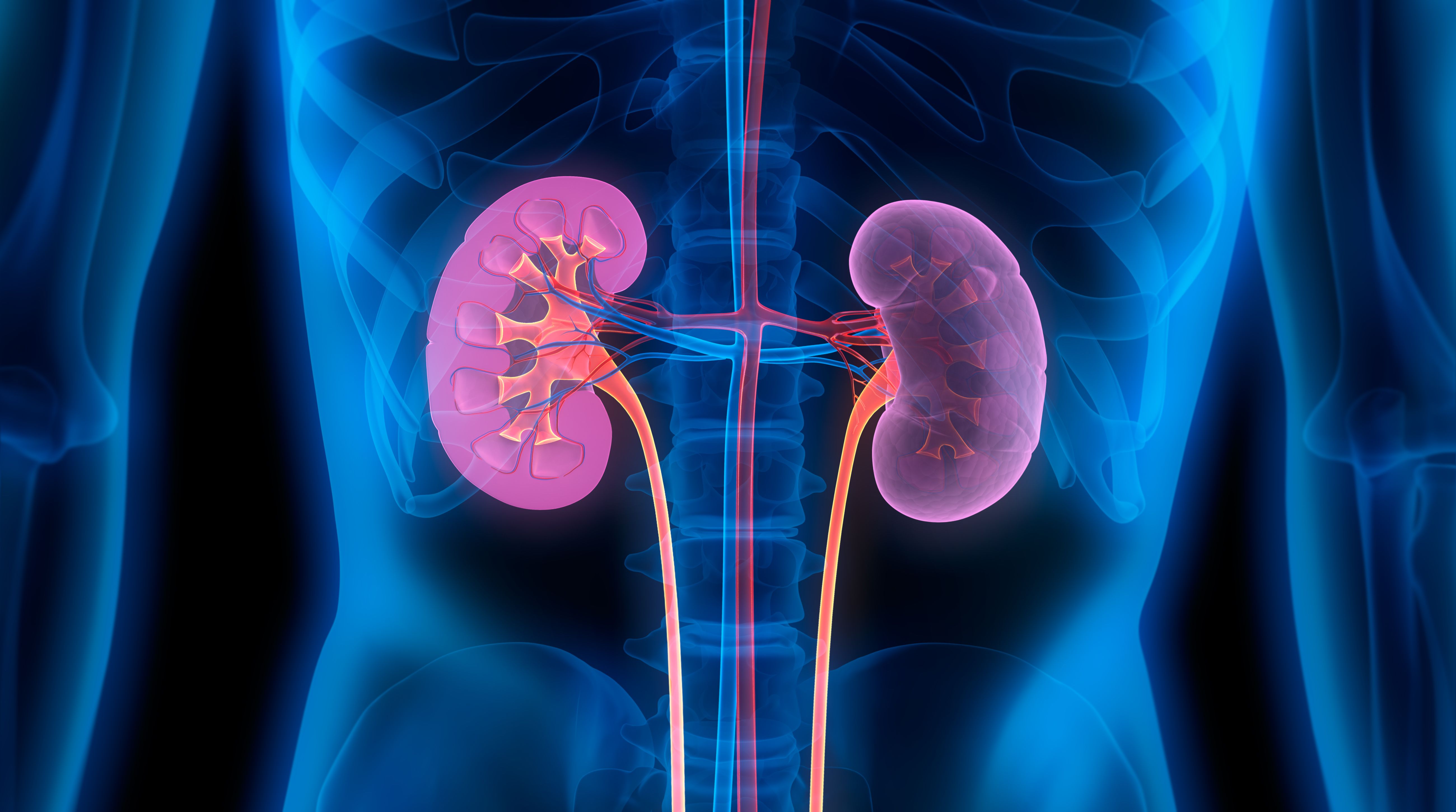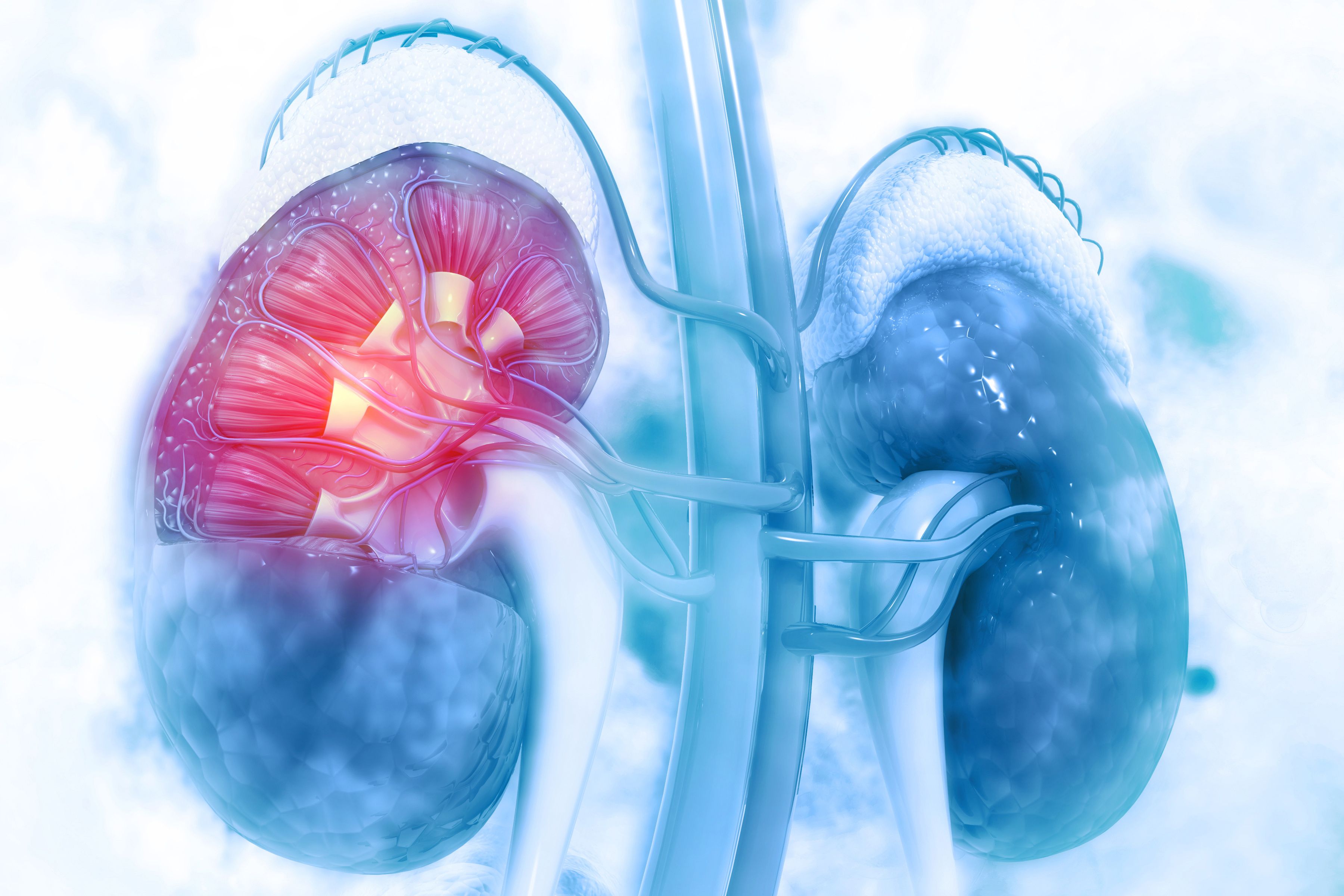SRK-181/Pembro Combination Shows Promise in ccRCC
The combination of SRK-181 and pembrolizumab demonstrated improvements in objective response rate among patients with clear cell renal cell carcinoma in a phase 1 proof-of-concept study.
Renal cell carcinoma: © peterschreiber.media - stock.adobe.com

SRK-181, a selective latent TGFβ1 inhibitor, continues to show promise as a treatment option for patients with clear cell renal cell carcinoma (ccRCC) resistant to anti-PD-1 therapy, according to findings from the phase 1 proof-of-concept DRAGON trial (NCT04291079) presented at the Society for Immunotherapy of Cancer Annual Meeting.1
As of the data cutoff date of August 29, 2023, 6 of 28 evaluable patients treated with SRK-181 and pembrolizumab (Keytruda) who were heavily pretreated had confirmed partial responses and best tumor reduction of 33% to 93%. Stable disease was observed in 10 patients, the disease control rate was 57%, and the objective response rate (ORR) was 21.4%. In the difficult-to-treat ccRCC population, anti-PD-1 retreatment generally results in single-digit ORR or no response, according to Scholar Rock.
Safety was evaluable in 30 patients, and SRK-181 appeared to be well-tolerated in combination with pembrolizumab. There were no observed dose-limiting toxicities (DLTs). One grade 4 treatment-related adverse event (TRAE) of dermatitis exfoliative generalized was seen, and no grade 5 TRAEs were observed. Pemphigoid and rash were observed in 1 patient, immune-related hepatitis was observed in 1 patient, and diarrhea, nausea, and vomiting were all observed in 1 patient.
Human kidney cross section on scientific background: ©Crystal Light - stock.adobe.com

“The DRAGON trial has successfully delivered on its objective of demonstrating proof of concept for SRK-181 by showing promising anti-tumor activity. These data, along with biomarker results that support proof of mechanism, highlight the immunosuppressive role of TGFβ as a mechanism of anti-PD-1 resistance in patients,” said Jay Backstrom, MD, MPH, president and chief executive officer of Scholar Rock, SRK-181’s manufacturer, in a press release.1
About the DRAGON Trial
The phase 1, open-label, dose-escalation, and dose-expansion DRAGON trial has an estimated enrollment of 74 patients and an estimated study completion date of December 2024. The primary end points are safety and tolerability of SRK-181 as a monotherapy and in combination with an anti-PD-(L)1 antibody therapy as evaluated by DLTs assessed by investigators. Secondary end points include pharmacokinetics of SRK-181 alone and in combination with anti-PD(L)1 antibody therapy as measured by maximum drug concentration (Cmax), time to Cmax, last validated plasma concentration (Clast), time to Clast, half-life, and objective response.2
SRK-181 is also being investigated in other solid tumor types, including non–small cell lung cancer, urothelial carcinoma, and head and neck squamous cell carcinoma.1
REFERENCES:
1. Scholar Rock presents new data from phase 1 DRAGON trial showing promising anti-tumor activity in anti-PD-1 resistant metastatic ccRCC patients and supporting SRK-181 continued tolerability. News release. Scholar Rock. November 3, 2023. Accessed November 7, 2023. https://tinyurl.com/2t6rtypv
2. SRK-181 alone or in combination with anti-PD-(L)1 antibody therapy in patients with locally advanced or metastatic solid tumors (DRAGON). ClinicalTrials.gov. Updated September 5, 2023. Accessed November 7, 2023. https://www.clinicaltrials.gov/study/NCT04291079
Peers Discuss Management of IO/TKI Toxicities and Dosing Strategies in Frontline RCC
March 11th 2025During a Case-Based Roundtable® event, Elizabeth M. Wulff-Burchfield, MD, and other participants discussed their experiences with the frontline combination regimens for advanced renal cell carcinoma.
Read More